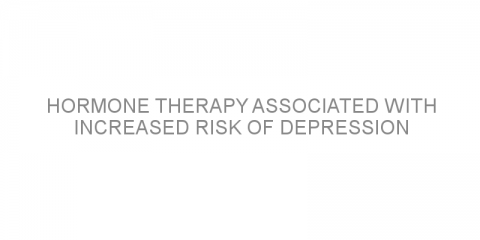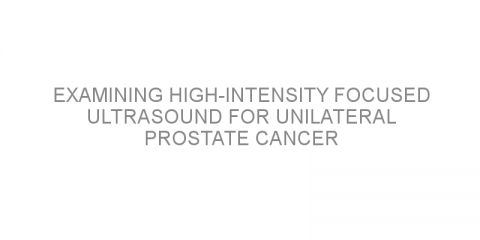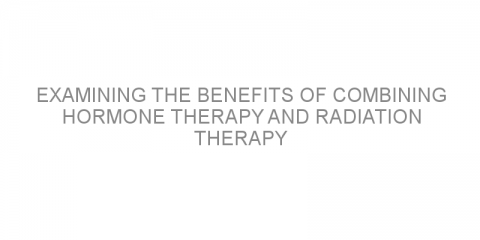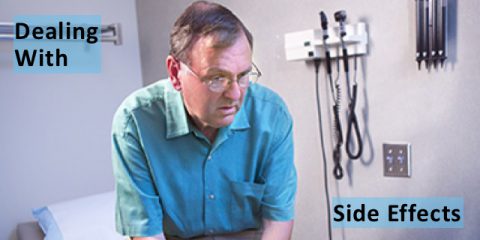In a nutshell This study examined the effect of androgen deprivation therapy (ADT) on clinical depression. Authors reported that ADT increased the risk of depression and the need for psychiatric treatment. The risk of depression increased with duration of ADT. Some background ADT is a type of hormone therapy commonly used to treat prostate cancer....
Read MoreProstate cancer Posts on Medivizor
Late-stage prostate cancer: Prolonging survival with immediate hormone therapy
In a nutshell This study compared immediate and delayed androgen deprivation therapy (ADT) for men with relapsed or non-curable prostate cancer. Authors reported improved survival and disease progression with immediate ADT. Some background ADT is a type of hormone therapy used to treat prostate cancer. It targets the production of male hormones...
Read MoreExamining high-intensity focused ultrasound for unilateral prostate cancer
In a nutshell This study examined the effectiveness of high-intensity focused ultrasound (HIFU) in treating unilateral prostate cancer (only affecting one side). Authors reported good cancer control and a low rate of side effects. Some background Advances in cancer screening methods have led to earlier diagnoses of prostate cancer. Most are...
Read MoreExamining the benefits of combining hormone therapy and radiation therapy
In a nutshell This study examined the evidence for combining androgen deprivation therapy (ADT) with radiation therapy for the treatment of high-risk localized prostate cancer. Authors concluded that the combined therapy approach was associated with a survival advantage for intermediate- and high-risk patients. Some background ADT is a type...
Read MoreThe effect of combined radiation and hormone therapy on long-term fatigue
In a nutshell This study examined the effect of combined radiation and hormone therapy on long-term fatigue. Researchers reported severe fatigue during and up to 4 years after treatment. Men with increased cancer markers and symptoms were more likely to report higher fatigue levels. Some background Radiation therapy and hormone therapy are often...
Read MoreManagement of high-risk prostate cancer – a summary of findings
In a nutshell This review evaluated recent evidence on the management of high-risk prostate cancer. Primary treatment options for high-risk prostate cancer were generally associated with good effectiveness, but authors advised that risk assessment is in need of refinement and standardization. Some background About 15% of men with prostate cancer...
Read MoreHyopfractioned or standard external beam radiation therapy – which is better?
In a nutshell This study compared external beam radiation therapy (EBRT) and hypofractioned EBRT (H-EBRT) for low-risk localized prostate cancer. Researchers reported no differences in disease progression or survival. However, an increase in side effects was observed with H-EBRT. Some background Radiation therapy is a common treatment for...
Read MoreHigh-risk prostate cancer: Surgery also a good treatment option for older men
In a nutshell This study examined outcomes of different treatment options among older men (aged 70 or older) with high-risk prostate cancer. Authors reported lower disease recurrence rates for prostate surgery compared to radiation and radiation with hormone therapy. Some background Prostate surgery and radiation therapy are both common treatment...
Read MoreSide Effects of Chemotherapy for Cancer: Infographic
Chemotherapy Side Effects Resources Cancer survivorship is impacted by side effects of treatment. Survivorship health information abounds on Medivizor: from the post on neuropathy to the new guidelines that have been created for physicians to care for the side effects for breast cancer survivors. In addition, the Medivizor Library provides a...
Read MoreCancer cells left behind: Even close surgical margins increase the risk of recurrence
In a nutshell This study investigated the risk of disease recurrence after prostate surgery based on surgical margins. Authors reported an increased risk of disease recurrence among men with close surgical margins. Some background Removal of the prostate gland is a common treatment of localized (confined) prostate cancer. Prostate surgery is...
Read MoreFactors important in upgrading from low-risk prostate cancer
In a nutshell This study examined factors important in upgrading from low-risk prostate cancer. Authors reported that age, tissue samples, and blood test results are strong predictors of upgrading from low-risk prostate cancer. Some background Most men diagnosed with prostate cancer are categorized as low risk. Low-risk prostate cancer is...
Read MoreManagement of prostate cancer in older men – an overview
In a nutshell This study evaluated recommendations for the management of prostate cancer in older men. Authors concluded that older men should be managed according to their individual health status and cancer risk classification, rather than by age. Some background The ageing of the population is expected to increase the number of older men living...
Read More









